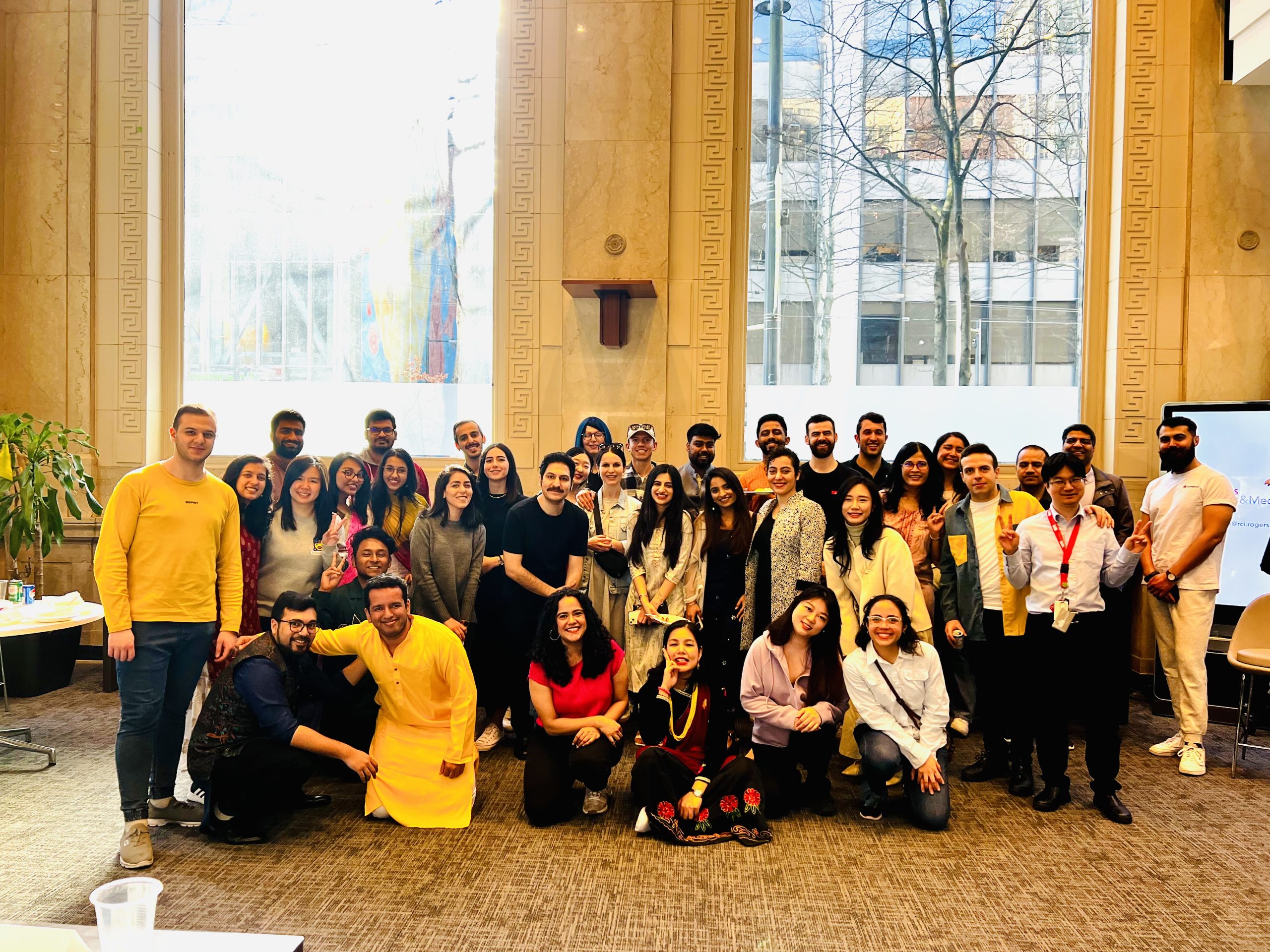Let’s start with the reasons why creating a professional network is necessary before moving on to the how-to. Engaging with people from all industries and backgrounds not only promotes idea sharing but also provides invaluable industry insights gleaned from firsthand experience. It is the most effective way to enter the system and take advantage of the relationships you make through networking to obtain job offers, internships, mentorship and other opportunities for career advancement or pivot. Since many job openings go unannounced, as is common knowledge, 85% of positions are filled through referrals, these connections can be very beneficial as they can advocate for you within the company if they think you possess the necessary skill set. These relationships can end up being your future business partners if you are in this program with the intention of launching your own venture. With the potential to benefit you in both your personal and professional life, this is the ideal chance for you to push yourself beyond your comfort zone and acquire soft skills, like effective communication and negotiation, which are vital to corporate leaders.
Overall, developing a professional network is crucial during your MBA program, and Simon Fraser University (SF provides several possibilities to do so. Doing so is an investment in your future that can have a big impact on your career path. SFU’s Full-Time MBA program is ripe with chances for you to develop a professional network. Here’s a comprehensive guide to help you navigate this essential aspect of your career development.
Know Your Cohort
Starting a networking career starts with your own cohort. Students from a variety of backgrounds and countries are enrolled in SFU’s MBA program, which provides you with the opportunity to learn about their academic and professional experiences. You can also take advantage of this opportunity to develop a global perspective. Because everything is constantly changing in this dynamic environment, every market is unique, and even the same company may operate very differently in a given location due to local cultural norms, you can never stop learning from your peers. It is advised to connect with them on LinkedIn in order to stay informed about all of their developments.
Connect with Alumni
SFU gives you access to a website called Beedie Advantage that allows you to interact with alumni in fields that interest you, as well as keep track of their active profiles. The Student Ambassador Program is another fantastic effort that connects incoming students with current students. It eases the transition into the program by providing answers to any queries, from basic to complicated, based on personal experiences, preparing students for their journey. Making connections with the alumni leads to a better understanding of their experiences with the MBA program and other industries.
Participate in Company Visits and Informational Sessions
SFU organizes company visits, allowing students to both experience company cultures and network with employees. These visits, coupled with informational sessions from different industries, provide deep insights into organizational operations and strategies. Networking sessions following these events are golden opportunities to connect with industry professionals, discuss specific roles, and establish meaningful connections.

Attend Panel Events and Volunteering Opportunities
Panel events featuring industry professionals are a regular feature at SFU. These events typically include Q&A sessions followed by networking opportunities. Volunteering to help organize these events can provide a direct line to industry experts and help you stand out by showcasing your organizational and leadership skills.
Leverage Workshops and Training Programs
SFU offers various workshops and training programs, such as the Case Competitions Training Program, Data Analytics Skills Camp and Consulting Pathways Program. These programs give you the opportunity to work in diverse teams, which helps in building networks across different cohorts. Facilitated by industry experts, these sessions are not just learning opportunities but also platforms for networking with experienced professionals.

Engage in MBA Games
Another great opportunity to network, support the principle of healthy competition, and represent your university is to compete in the BC MBA Games and the national MBA Games. These gatherings of graduate students from other colleges provide you the chance to show off your abilities and make connections with peers and professors from other schools. More networking chances are provided by the social events connected to these games, like gala nights and welcome ceremonies.
Utilize Beedie Community and Eventbrite
Follow the events listed on the Beedie Community platform to stay informed of any networking events, panel discussions, workshops, company information sessions, and job opportunities posted by SFU’s Career Management Centre (CMC), to which Beedie students are typically granted unique access. Another helpful resource for locating networking events in Vancouver is Eventbrite. These gatherings frequently bring together students and professionals from different fields, offering lots of chances for networking.
Master LinkedIn
LinkedIn is an indispensable tool for professional networking. SFU offers courses early in the program to help students optimize their LinkedIn profiles. Connect with all the students and professionals you meet, engage in meaningful conversations, and request coffee chats to deepen these connections. Use LinkedIn to display your interest in specific roles and ask for introductions to other relevant professionals.
Join and Lead Student Clubs
Student clubs at SFU include the Graduate Business Student Association (GBSA), Net Impact, Graduate Women’s Council (GWC), and the Justice, Equity, Diversity & Inclusion (JEDI) Student Council. These clubs provide students with leadership opportunities and the ability to plan events. This allows them to network with professionals in the field, effectively promote the club’s ideas, and helps to ensure the successful implementation of their events. SFU offers a great deal of flexibility, as demonstrated by Juliet Feng, one of our classmates, who started her own wellness club and gave some very helpful workshops and speaker sessions that not only helped us strengthen our mental health but also opened up networking opportunities.

Conclusion
Beginning on the first day of the graduate program, you should be able to take advantage of every chance the institution gives you to establish a network. Networking techniques are very beneficial and always yield some sort of personal or professional gain. We learned why and how to network, but the first step in the process is to learn how to get over your fear and become at ease with it. You can attend more social gatherings, work on striking up conversations with friends and relatives, and use shared interests to cultivate relationships. Recall that networking is a two-way street where you meet people who share your objectives and experiences, so don’t be shy about asking for assistance or sharing your ideas.
___________________________________________________________
About the Author

Shubhangi Matta is a dedicated professional with a solid foundation in finance. She completed her undergraduate education with a Bachelor of Commerce (BCom) and has gained valuable experience as a Finance Associate at Paragon Pharmaceuticals. Her journey doesn’t stop there, Shubhangi is currently pursuing her MBA at Simon Fraser University, further enhancing her expertise and knowledge in the field of business and finance. With a strong educational background and hands-on experience, she is poised for success in the dynamic world of finance and management.